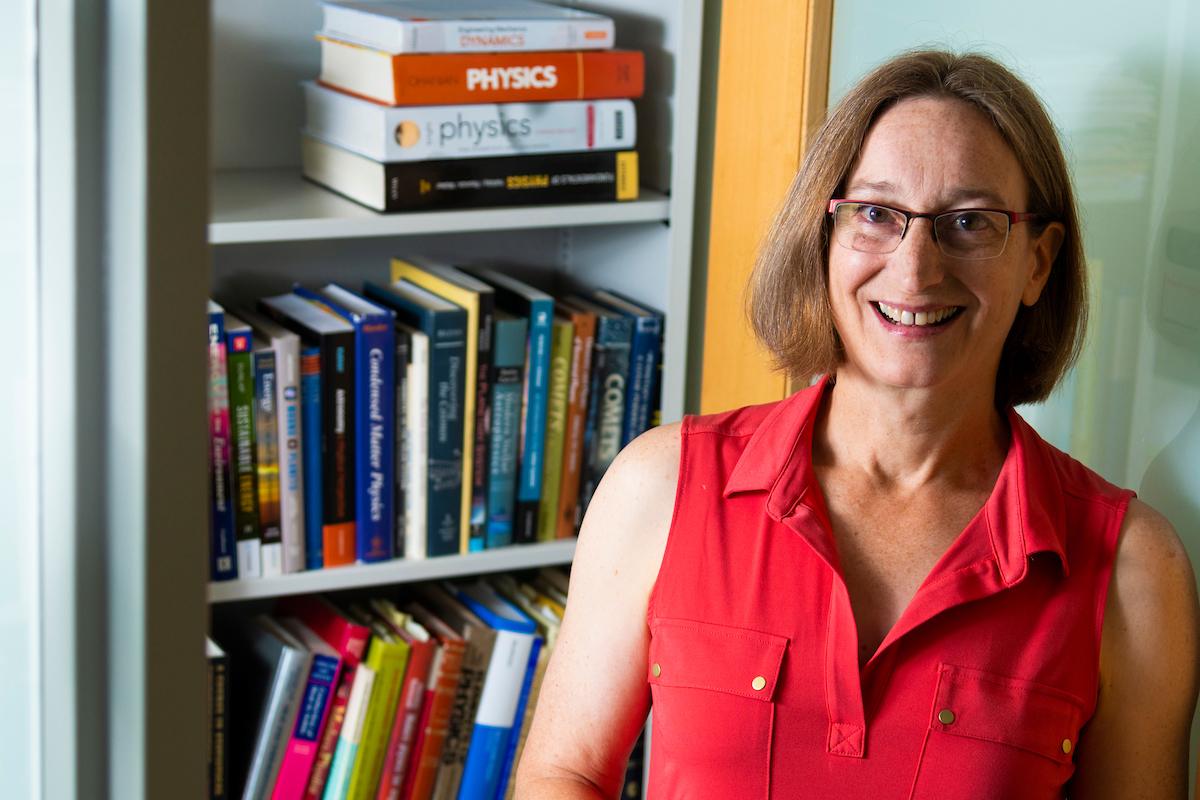
January Instructor of the Month Maya Wheelock shares her insight on teaching, and what makes physics the foundation of science. Photo credit: John Ulan
As a faculty lecturer in the Department of Physics, Maya Wheelock has had the opportunity to teach a great number of students over the years, introducing them to the wonders of physics.
Meet our January Instructor of the Month, and hear from Wheelock on what makes physics the foundation of science, the opportunities that research can provide students, and how washing glassware led to one of her favourite learning experiences on campus.
What do you teach?
I mostly teach large first-year physics courses for non-majors, with an occasional higher-level course thrown in. That includes everything from physics for life sciences to physics for engineers. Teaching huge lecture courses can be challenging, but rewarding as well, because I get to meet students with an enormous range of interests. And I occasionally have the pleasure of hearing from past students who have gone on to become environmental scientists, medical professionals, teachers, engineers, and everything in between.
Why should people learn about this subject?
Physics is the most basic of sciences! And I certainly don't mean "basic" in its modern pejorative sense. I mean that physics is the foundation of all fields of science and engineering.
For example: One day I found myself seated next to a former student on a flight to Vancouver. She had graduated and was just finishing medical school. Recalling her undergrad days at UAlberta, she remembered thinking that physics was "a hoop to jump through," after which she would never have to think about physics again. But that all changed when she started medical school. She found that in virtually every area of medicine, her professors referred to physics concepts when explaining how and why the human body works the way it does. "It's all physics!" she said.
Additionally, if a student has an opportunity to learn just a little bit about the astonishing recent results in areas like particle physics or astrophysics, it can spark a life-long interest in science and curiosity about the universe we live in.
What was your favourite learning experience as an undergrad? How do you incorporate that experience into teaching your students?
My favourite learning experience didn't happen in a lecture hall. It was the opportunity to work in a research lab. Incidentally, I think that is one of the great advantages of choosing to study at a major research university like the University of Alberta.
I have to admit that my first job-washing glassware in a medical research lab in the middle of the night-was less than inspiring. But you have to start somewhere, and that job led to a better position in an astronomy lab, collecting and analyzing interplanetary dust particles. I loved the work, became involved in every aspect of the research, and was eventually hired to work full-time. That experience more than any other is what set me on the path to where I am today.
Now, as an instructor, I tell stories about my own research experience when covering related topics. Personal stories help to make potentially dry topics more relevant and memorable to students, helping them picture their own pathways to success.
What was it that drew you to this field?
It's hard to pinpoint one particular thing. I remember being interested in science from a young age, but I might have been influenced by reading science fiction as a child. One summer at my grandparents' house when I was 10 or 11, I discovered an archive of my brother's old science fiction magazines. The stories were intriguing and at times disturbing, but they got me thinking about science. By age 17, I was asking my parents for physics books for my birthday.
What is one thing that people would be surprised to know about you?
People probably wouldn't guess that I was in three modern dance troupes as an undergrad!